What If Your Kids Don’t Read Fantasy?
I can’t tell you how many times I’ve spoken with a mature Christian friend about their uncertainty of the role of fiction and imagination.
They may know it’s good in a nebulous sense, but what should they do when their child suddenly has an appetite for fantasy? What if they ask to read Harry Potter?
They don’t consider themselves fundamentalists, yet they think fantasy poses a real threat to their child.
In November 2017, my article, “The Dark Alleys of Young Adult Fiction” was published by Desiring God. This piece was intended only to warn against sexual content in young adult fiction. But the Facebook status that accompanied the article was confusing to say the least. It read:
In their defense, they might have meant sexual fantasy, not the genre. But that isn’t how many people read it—and understandably so. The emails I received afterward questioned not only the cleanliness of their child’s literature, but also the fantastical elements.
Is a specific book or series okay to read? How can parents tell if a fantasy novel will encourage their child to use magic?
Those are the wrong questions to ask.
In all my years of reading fantasy, I have yet to meet someone who joined the occult after reading a book with magic in it.
Ask yourselves this instead:
What negative impact will it have on my child’s mind and heart if I don’t let them read fantasy?
That is a far more pressing concern and one more Christian parents should have.
“In the beginning God created . . .”
The first character trait we learn about God is that he is creative. In the same chapter we discover our own place in the cosmos: “So God created man in his own image; he created him in the image of God; he created them male and female. God blessed them, and God said to them, ‘Be fruitful, multiply, fill the earth, and subdue it. Rule the fish of the sea, the birds of the sky, and every creature that crawls on the earth.’”
That last bit is known as the “cultural mandate.” As divine image bearers, we’re commanded to fill the earth, subdue it, cultivate it.
In The Mind of the Maker, Dorothy Sayers argues that creativity is the primary way humankind are made in God’s image. Our ability to create beauty is an essential part of fulfilling the mandate. This includes everything from farming, engineering, music composition, and space exploration—cultivating all the possibilities of God’s creation.
So why advocate creating fantasy specifically? After all, there’s a lot of fantasy out there that’s just plain weird, for example, anything made by Tim Burton, Jim Henson, and Hayao Miyazaki. We think these storytellers must be very strange. How did they come up with something so jarring and disturbing? We decide they’re probably mentally unstable, therefore what they’ve created must be bad. We certainly wouldn’t want to expose our children to the creation of a mad man!
In his essay, “On Fairy-Stories,” Tolkien addresses this issue:
I am thus not only aware but glad of the . . . connexions of fantasy with fantastic: with images of things that are not only ‘not actually present,’ but which are indeed not to be found in our primary world at all. . . . That the images are of things not in the primary world (if that indeed is possible) is a virtue, not a vice. Fantasy (in this sense) is, I think, not a lower but a higher form of Art, indeed the most nearly pure form, and so (when achieved) the most potent. Fantasy, of course, starts out with an advantage: arresting strangeness. But that advantage has been turned against it, and has contributed to its disrepute. Many people dislike being ‘arrested.’ They dislike any meddling with the Primary World, or such small glimpses of it as are familiar to them. They, therefore, stupidly and even maliciously confound Fantasy with Dreaming, in which there is no Art; and with mental disorders, in which there is not even control: with delusion and hallucination.
When we encounter stories that jar us with their strangeness, we should not run from them but to them. They’re strange to us because another person has experienced things we haven’t and has grown their imagination either in a different direction or to a larger degree than we have. This is not evil. Imagination, especially the arresting kind, increases our ability to stand in awe of God and his creation. Strangeness draws our eyes, and in so doing, places special emphasis on truth and reality.
Even non-Christians have something to teach us about reality through unreality. God has given them common grace—the grace that God gives all humans to see and understand truth. Armed with our ability to think critically about culture, we can learn from them and grow our own imagination to better worship God. Any yet, it’s because we cannot think outside the box of normalcy that we cripple our critical thinking capacity.
The Bible itself has excessively weird stories, many of which are metaphors—unreality used by God to convey truth. And yet we not only disengage from such practices when people create similar stories, but condemn it.
Back to the original question, what do we deprive from our children when we don’t allow them to read fantasy? It’s not like many people will spend their lives sub-creating—when a human creates an imaginary world in divine imitation—in the same manner as Tolkien. Yet, if using imagination to create—whether it be a story, a car engine, plans for a building, a board game, or dance choreography—is a virtue, expanding its scope through unusual stories will only further our talents as well as our sanctification.
Reject the notion that fantasy is mere entertainment. That is an ugly word for what is really going on in our hearts when we engage with fantasy. We are seeking our own joy, and in so doing, expanding our imagination which furthers our journey toward virtue, and therefore, glorifies God.


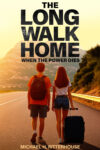
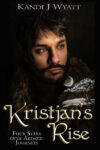



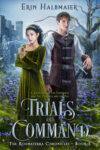

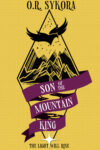
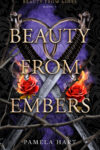














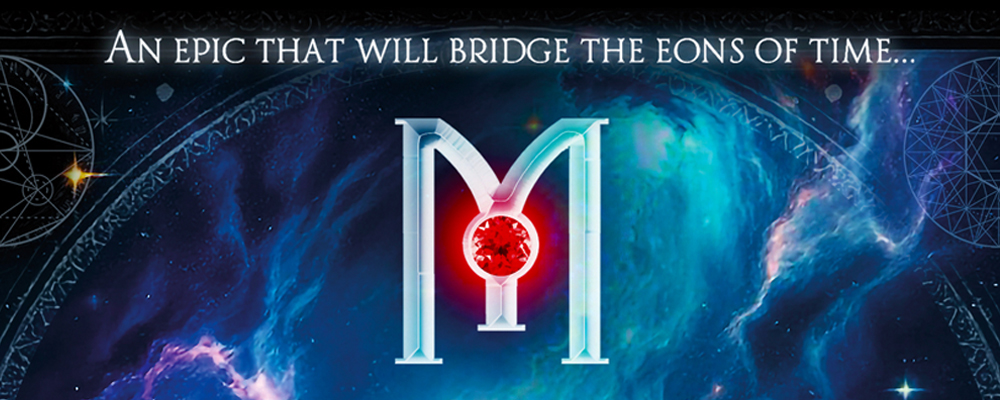

Excellent article!
Thank you for writing this article. I read a lot of the YA novels to keep up with the world my teenage daughters are engaging in. There is a series I luv but had to stop my daughter at the fourth book because the writing became more sexually graphic. The fifth book was worse – it was like trying to eat very bony catfish. I wrote to the publisher – no response. I talked to bookstores about clearly labeling books with explicit content (just like record labels) because you dont know its there until you read the line leading into the narrative.
A couple of years ago, I spoke to the author at Comic-Con regarding the sexual content. She graciously acknowledged the issue. Her most recent book in the series was released in Sept 2017 – I didnt read it right away – dreading I would have to return it. But I was more than pleasantly surprise – the author returned to her vintage writing that made her a New York Times bestselling author minus the explicit content.
I do think YA novels should be clearly labeled – just like music.
Complete tangent, but I think that exacerbates the problems rather than solving them, mostly because I don’t think you should be monitoring your teenagers’ reading material that closely, because they are teenagers and not small children.
I WAS that sheltered kid, except not even my dad felt the need to monitor my media consumption that closely after I got older than 12-ish.
And I think this is harmful also/because it’s about sex in particular. Because “sex is a horrible, disgusting thing you should only do with someone you love” is very much not a healthy attitude, to teach or to have. The problems don’t go away even if we censor them. Ask me how I know (I can give you an entire essay on the subject).
Sorry, I’m confused. I didn’t see “sex is a horrible, disgusting thing you should only do with someone you love” in Karen’s comment, but you put it in quotes like she wrote it. Are you referring to another comment somewhere else?
It’s an established joke about Southern Baptist attitudes, like “Why don’t Baptists have sex standing up? Because that could lead to dancing.”
It sounds like you have been affected by silly stigmas against Baptists, and other Christians, in the same way some older conservative Christians of yore have been affected by silly stigmas against (even God-blessed, marital) sex. 🙂
Dude, I grew up in Baptist country. I have heard the prayers for “hedges of protection” with my own ears. I know what Baptists are like. That’s why I can make fun of them.
As did I, as have I, and I also make fun of Baptists. So do the joyous, non-legalistic, non-silly Baptists I know–e.g. the folks I wish you could meet so you’d see how much you may risk stereotyping other Christians.
I think you mistook what Karen said. She wants to know the world her teens are in and give them guidance. That is healthy parenting. I read manga with my girls so we can discuss what they are reading and know what boundaries to have.
I also don’t see where Karen said sex is nasty and bad. Rather, again, she wants to help her girls have boundaries. Some things, while good, are best left in the bedroom and not graphically displayed across the page.
Oh, I am definitely reacting to the larger Christian culture and its assorted baggage, but at the same time it’s not realistic to pretend her specific situation is happening in a vacuum.
Chances are solid that her girls have been exposed to purity culture-type toxic garbage, and what she describes sounds like she’s pre-screening the books before her kids get to read them. That sounds like the formula I’m familiar with: deliberate ignorance to the nth degree x (patriarchal) cultural garbage that leaks thru despite precautions = toxic attitudes.
Ignorance about sex is not purity. It makes informed consent nearly impossible (for those who don’t know, informed consent is IMPORTANT).
The thing with stories is that we’re usually very intimate with our characters, and the things that are carefully, deliberately not mentioned send a definite subtextual message. There are no bathrooms on the Enterprise because we all “know” that characters don’t poop, but let’s think about what the subtext is when sex is put in the same category as pooping.
Also, since the most interesting types of sex/snogging/heavy petting are relational in nature, it can be important to show characters interacting and bonding in that fashion. It can be awkward and funny or kinda desperate when done after a stressful catastrophe or comfortable and companionable (don’t worry, I’m married, I can talk about it).
And hopefully I’ve demonstrated how it can be descriptive without having to be graphic.
Remember, notleia, that your experience isn’t something generally true. Some people might have had a similar background, but some might have had a completely different experience, even within a conservative context. I think it’s kind of funny that you zeroed in on Baptists, though Karen also did not give any indication that she came from a Baptist denomination. That’s what you know and therefore what you react to, but it’s not the only conservative Christian understanding of Scripture. You really have no way of knowing how others present sex or fantasy or discernment or parenting. I’m glad you feel free to relate your experience, but that is not, therefore, a universal experience of all young people raised in a conservative Christian environment.
Becky
Hm…there seem to be a few common themes in what you’re talking about. Partially about parents micromanaging children, and partially about ignorance. To a great extent I agree with you, I don’t think that parents should micromanage, at least not during the child’s teen years, and of course once children hit their teens they should know what sex is/have a decent understanding of it. But parents asking children to be careful about what they read isn’t nearly the same thing as forcing the child to be completely ignorant.
I know as a teen I wasn’t allowed to read explicit content, but my parents didn’t expect me to be completely ignorant about that kind of stuff either. They didn’t mind me reading stories that discussed some of the issues surrounding sex, so long as they weren’t super graphic or unnecessarily crass about it, and they always told me that they were there for me if I had any questions about that stuff. My parents didn’t inspect most of what I read because they didn’t have time and they trusted me to have good judgement, and I think they made the right choice in how they handled that for me. But it’s not fair to assume that all or even most Christian parents keep their children ignorant just because the ones you grew up around did. My family isn’t Baptist, but we are conservative and my parents are strict in some ways, but not remotely as bad as you’re describing.
When it comes to the ‘no bathrooms on the Enterprise’ thing, I think it’s actually the opposite. 😛 Everyone knows humans have to poop, so no one really cares unless it’s actually relevant to the plot somehow, therefore the story focuses on things that actually matter. I do think that stories for older teens and adults should be able to discuss issues surrounding sex, though, even if from a moral standpoint I don’t think they should use explicit sex scenes to accomplish that end.
The way I handle it in my stories is to address the issues through circumstances, as well as character behavior and dialogue. I don’t need to write actual sex scenes because writing for teens and adults means that the audience has an idea of what is going on without the author having to spell things out. The Naruto fanfic I’m working on has a lot of examples of this, actually.
Way into the story, for instance, one of the characters starts to question how he feels about being a ninja and starts dissociating from his clan, family and to an extent his village. He ends up in a relationship with this girl that, he feels, is showing him the answer to some of the issues he sees in the ninja world. It’s implied from their behavior, and perhaps briefly mentioned, that they were intimate, and it’s undeniable after they eventually have a child together. But that is discussed and addressed in the story without having to explicitly show any sex scenes, and instead places more emphasis on why the characters made certain choices and how those choices affected them.